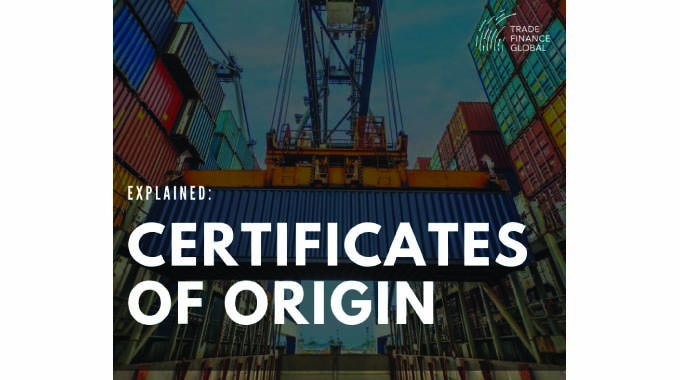Sadc adopts e-Certificate of Origin framework

Business Reporter
THE Southern African Development Community (Sadc) says it has begun piloting the “Electronic Certificate of Origin” programme aimed at facilitating enhanced regional trade.

Electronic Certificate of Origin (Photo credit: Trade Finance Global)
Preparations for the official launch of the initiative next month are underway and the bloc expects that all member States would have implemented the programme by 2024.
In line with the global e-commerce crusade, the bloc said in a latest update that the intervention would result in smooth movement of goods across the region to end consumers.
“Intra-Sadc regional trade is being slowed down by delays and other involved costs in the manual processing of the Certificate of Origin from start to end, contributing to the total negative effect on trade,” said Sadc.

Trade Facilitation Programme (TFP)
“As one of the key focus areas for the Sadc Trade Facilitation Programme (TFP), the e-Certificate of Origin will increase the seamless flow of intra-trade across the region by eliminating impediments caused by the manual process.
“The framework is now being piloted in Eswatini, Malawi and Zambia while work is on-going for the framework to be piloted in Botswana, Lesotho, Mauritius, Mozambique, Namibia, South Africa, United Republic of Tanzania and Zimbabwe.”
A Certificate of Origin or declaration of origin refers to a document widely used in international trade transactions, which attests that the product listed therein has met certain criteria to be considered as originating in a particular country.
The Sadc “E-Certificate of Origin Framework” was first approved by the committee of ministers of trade in 2019 and its set to promote application of the Certificates of Origin electronically, thus easing cross-border trade in the region.
Over the years Sadc has been conducting manual processing of Certificates of Origin by issuing authorities in the country of origin of the goods, according to the rules contained in the Sadc Protocol on Trade.
The procedure is, however, cumbersome as it requires traders to go physically to the offices of the authority responsible for the issuance of the Certificate of Origin in order to lodge the relevant application and obtain response on the issuance of the certificate.
Once the issuing authority has verified that goods declared by the exporter conform to Sadc rules, the Certificate of Origin is then transmitted to the country of import.
“Implementation of the e-Certificate of Origin will, therefore, simplify this process since it will allow the trader to apply online, trace the application and get the response on the submission through the same platform,” said Sadc.
“Customs authority of the importing country will verify online the e-Certificate of Origin authenticity, without the need to receive the original paper-based certificate.”
This reduces the time taken to process the application and insurance since it will allow the trader to apply online, trace the application and get the response on the submission through the same platform.
A reference number will be issued for the purpose of process customs declaration at the country of exportation, said the bloc.
It said the digital system was equipped with security features such as online authenticity verification, optical watermarking technology to distinguish between original and copies of Certificates of Origin issued.

Sadc Free Trade Area (FTA)
“The e-Certificate of Origin is being considered under the Sadc Free Trade Area (FTA) whose objectives are to further liberalise intra-regional trade in goods and services; ensure efficient production; contribute towards the improvement of the climate for domestic, cross-border and foreign investment,” said Sadc.
According to the statement, the implementation of the electronic Certificate of Origin is sponsored by the European Union (EU) to the tune of €15 million and its overall objective is to enhance inclusive economic development in the Sadc region through deepening regional economic integration and increasing intra-regional trade.

Regional Economic Integration
The initiative is also supported by GIZ-Cooperation for the enhancement of the Sadc Regional Economic Integration (CESARE) Programme).
It is expected to further improve the quality of intra-regional trade data resulting in statistical analysis that can be used in making key managerial decisions, and improved competition by regional producers/exports.
Sadc said going electronic will further greatly reduce fraud, give the traders fair competition across the market and contribute to the reduction of non-tariff barriers to trade while enhancing participation of Sadc states in the regional value chain.
The ultimate desire is to support successful implementation of the Sadc Industrialisation Strategy and Roadmap (2015-2063) in the consolidation of the Sadc FTA.










Comments